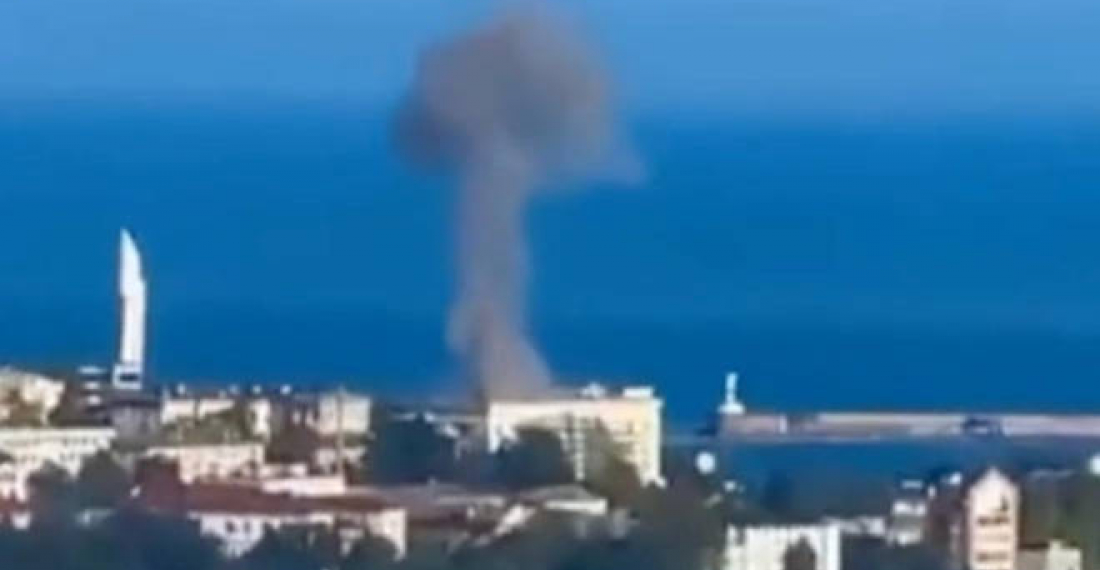A drone strike hit the headquarters of Russia’s Navy headquarters in Crimea, sparking a huge explosion today in another suspected raid by Ukrainian forces.
Smoke plumes billowed into the sky following the strike on Putin’s navy HQ. Russian forces tried to shoot down the drone but it detonated. No-one was killed.
There were reports of "a powerful explosion" near the Russian Black Sea Fleet's headquarters in occupied Sevastopol at 8.20 on Saturday morning (20 August).
The Russian-installed "governor" of occupied Sevastopol Mikhail Razvozhayev said a drone hit the roof of the fleet's headquarters, writing on Telegram: "Unfortunately, [the drone] was not shot down, although they worked on the bay with small arms. [It] went low. There were no victims."
It is the latest in a string of blasts, widely believed to be inflicted by Ukrainian forces, deep in the occupied peninsula. Russia considers Crimea to be an impregnable fortress and attacks on the peninsula which is full of military facilities is a serious embarrassment for the Kremlin
Western officials have said Ukrainian strikes in Crimea are having a major psychological and operational effect on Russian forces.
On August 9, the Saki airbase was rocked by a series of explosions, putting more than half off the Black Sea fleet’s naval jets out of action.
In April, Russia’s flagship cruiser Moskva was sunk by Ukraine.
Crimea was typically considered to be beyond the reach of Ukrainian attacks. Russian tourists visiting the area have fled back into Russia.
Western officials, speaking anonymously, told the BBC that the Russian Black Sea fleet has been reduced to little more than a ‘coastal flotilla.’
On Wednesday, UK defence officials said the Kremlin's plans have been "undermined" by the navy's failure to assume full control over the Black Sea.






